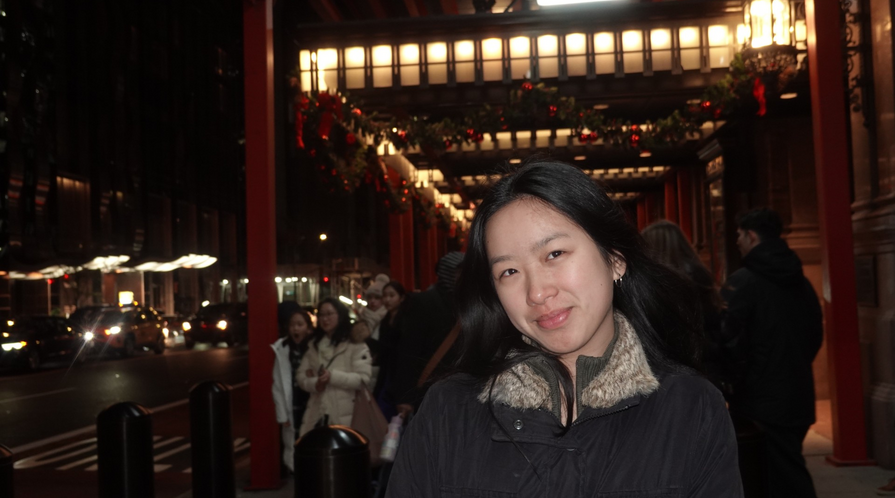The Endurance of History: A Reflection on the Importance of the Sejong Korea Scholars Program
The Endurance of History: A Reflection on the Importance of the Sejong Korea Scholars Program
The following reflection is a guest post written by Eloisa Lin, an alumna of the Sejong Scholars Program.

I have always wished to learn more about Korea. Since I am only half Korean, my grandparents’ stories of Seoul made up the extent of my knowledge for much of my childhood. As I grew up and began to slot together my identity in a patchwork of personality and truths, my Korean identity simply did not fit. I could barely stomach the spice of bibimmyeon, my mother’s favorite Korean noodle dish. Wearing hanboks, the traditional Korean dress, never gave me the elegance my cousins seemed to embody. Speaking Korean didn’t come to me as easily as it did for my sister. What I did have were my grandparents’ firsthand stories, with rich history peeking through childhood anecdotes and accounts of war. Korean history always felt quite accessible to me, even if it didn’t make me feel Korean enough.
Accordingly, getting to participate in the Sejong Korea Scholars Program was a dream come true for me. I sensed that it would be a unique and incredible opportunity, and that perception was immediately confirmed by the first introductory meeting on Zoom. If anything, the online format made the focus of the program even clearer, and each virtual classroom felt just as grounded as any in-person class I’ve experienced.
It was especially exciting to be surrounded by 18 other like-minded and talented peers. We were all in pursuit of the same learning, the same deep dive into Korean history—and many were in the program for reasons similar to mine. There was a deep affinity for culture in the group, and not just for Korean culture. With so many Korean Americans in the group, it was fun to post or comment about our connections to Korea, and just as exciting to learn about Korean Americans from esteemed Professor Kyeyoung Park, who graciously answered all of our questions. I also must commend the students who weren’t Korean and simply were excited about Korean history; their passion was always quite inspiring.
Above all, what made SKSP so special was the historiography, which had long been a personal area of interest. Dr. HyoJung Jang, our extraordinary instructor, curated a diverse assortment of sources each week, ranging from U.S. government documents to articles to contemporary qualitative experiments. In between each virtual classroom, I pored over several sources, and reflected on the way they interacted with each other. As I worked on our biweekly writing assignment, I found myself making multiple connections for each source and forming my own mini arguments in the paragraphs. By the time we got to each lecture, I had stewed on my ideas long enough to get quite excited about the questions I wanted to ask.
Each lecturer gave a spectacular presentation and was quite generous with their time. In particular, I’ll highlight Professor Gi-Wook Shin and Professor Nancy Abelmann, who taught us about different facets of contemporary Korean society: nationalism and the education system, respectively. Their talks were grounded in Korean norms of filial piety, respect, and also patriarchal systems, a topic I intended to write my paper about.
At the time, however, my paper topic was, quite frankly, a mess. I knew I wanted to involve pop culture somehow into my discussion of ingrained misogyny in Korean society, but had written some incredibly vague topic proposal about sexist dating norms present in music and TV shows. Luckily, Dr. Jang gave some much-needed feedback about the large scope of my proposal. In the process of reading through academic papers around sexism, I came across digital feminist movements, and decided that the accessibility and weaponization of the internet was going to be my new focus. Of all the incredible experiences in the program, I think I’ll always remember writing my paper, how Dr. Jang was an especially important personal mentor, and the overwhelming feeling (as I was writing) that I was connected to my culture, somehow.
When I think back to the way I worried over my lack of a connection to Korea at the beginning of the year, I find my concerns a bit silly now. I now know that I have always been connected to my heritage through my history. Even if that didn’t feel like it was enough before, my scholarship and pursuit of Korean history through SKSP have now proven that to me. I will forever remember this program as a place where my writing became true to myself, and went beyond what I ever could have imagined. To all interested students, I urge you to apply without inhibition. You will surely find something you didn’t know you needed—whether it’s a reassurance about your culture, a reignited passion, or simply growth—in the Sejong Korea Scholars Program.
SKSP is one of several online courses offered by 91łÔąĎ.
To stay updated on 91łÔąĎ news, and follow us on , , and .



